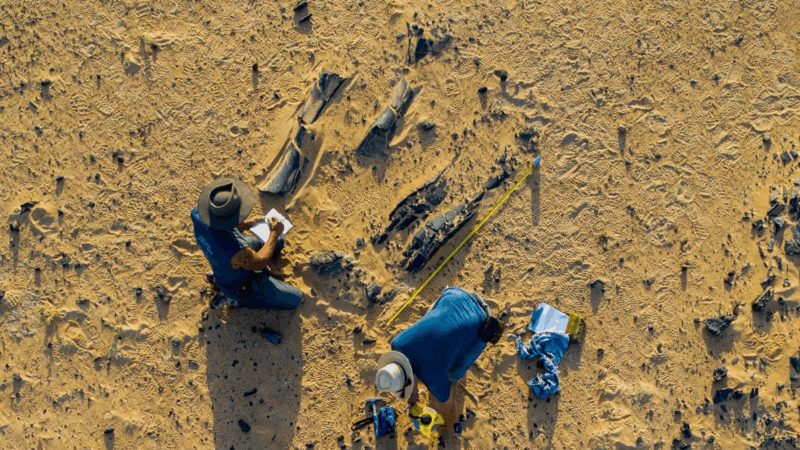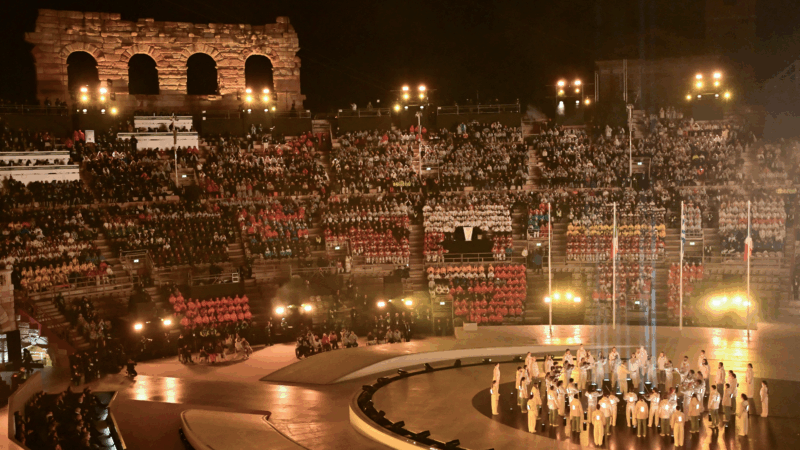New books this week focus on Caitlin Clark, King Tut, and how ‘Democrats Lost America’
Let’s start with the bad news: For some of us in the U.S. right now, it’s HOT out there. And it’s possible that at some point, on a trip to your local library or bookstore, you may have to suffer though some time without air-conditioning.
Desperate as that sounds, the good news is that at least there will be some excellent new books (and cooler air!) awaiting you when you arrive. This week, the highlights of the publishing calendar include Gary Shteyngart’s new novel and a slew of nonfiction — from recent history and memoir, to a past so distant it takes some experimentation just to get a sense of it.
Whichever direction you go, just promise one thing: Hydrate please.

Dinner with King Tut: How Rogue Archaeologists Are Re-creating the Sights, Sounds, Smells, and Tastes of Lost Civilizations, by Sam Kean
In classrooms and academic journals, archaeologists have conjured — from recovered relics — vivid portraits of some of the remoter crannies of humankind’s past. “But you don’t get the sounds, you don’t get the smells, you don’t get the tastes the way you do in experimental archaeology,” Kean told NPR’s Weekend Edition. Basically, the idea behind the gonzo discipline is to test our theories about how people lived in ancient Egypt, say, or prehistoric Polynesia, by literally trying firsthand how, or even if, they would have worked in practice. A novice himself, Kean plays our intrepid surrogate in this globe-trotting introduction.

The Jailhouse Lawyer, by Calvin Duncan and Sophie Cull
As far as classrooms go, the Angola State Penitentiary in Louisiana is not ideal. Still, that’s where Duncan, one law book at a time, learned what he needed to take up his own appeals case and support his fellow inmates in theirs. Written with Cull, this memoir is not only the story of his improbable, self-taught journey to exoneration of a murder — and a law degree of his own; it’s also an indictment of the process that reduced him and other prisoners to such a position in the first place. “Do we actually want a criminal justice system that looks like this?” he asked on NPR’s Weekend Edition.

A Marriage at Sea: A True Story of Love, Obsession, and Shipwreck, by Sophie Elmhirst
Folks who have encountered Jon Krakauer’s Into the Wild or its film adaptation may well recognize the restless desire that animates Maurice and Maralyn Bailey. The real-life couple at the heart of the British journalist’s debut also shuffled off this modern coil in search of an authentic life — only, instead of the Alaskan wilderness, they chose to set sail for the other side of the world. As you may imagine, things went a bit sideways from there. Previously published last year in the U.K. as Maurice and Maralyn, the bonkers true story has been dressed up with a new title and cover art for its American audience.

On Her Game: Caitlin Clark and the Revolution in Women’s Sports, by Christine Brennan
The very definition of a household name, the NCAA’s all-time leading scorer and WNBA sensation needs no introduction at this point — but another victory lap probably won’t hurt. Brennan, a longtime sports columnist and former NPR contributor, offers an adoring account of the 12-month span that saw Clark conquer women’s basketball and help spur its unprecedented boom in popularity, as well as an undertow of controversy that occasionally included Brennan herself.

2024: How Trump Retook the White House and Democrats Lost America, by Josh Dawsey, Tyler Pager and Isaac Arnsdorf
The trio of political reporters, who hail from the blue bloods of legacy media, have pooled their extensive reporting from the trail for this blow-by-blow retrospective of last year’s presidential election. They embroider the account with vivid anecdotes, and glimpses of the private conversations that helped shape the whiplash paths of the dueling campaigns.

Vera, or Faith, by Gary Shteyngart
Say this for Vera, the very bright, very anxious 10-year-old whose name graces the title: It’s fair to feel anxious about the near-future U.S. that Shteyngart imagines here, in which nativist policies are giving way to outright fascism and privileges are being doled out to only a few “exceptional Americans.” Seen from Vera’s eyes, though, democracy’s crushing dissolution is just one of the worries on her plate — not quite as pressing as patching her father’s relationship with her stepmother or finding out about her Korean biological mom. It’s Shteyngart’s first novel since 2021’s COVID chronicle, Our Country Friends.
Newly discovered dinosaur species was a fish-eater with a huge horn
The semi-aquatic dinosaur, Spinosaurus mirabilis, was discovered by an international team of scientists working in Niger.
Reporters’ notebook: The Olympics closing ceremony is way more fun than you’d think
Olympics opening ceremonies tend to get more love than their closing counterparts. But a pair of NPR reporters who watched both in Italy left with a newfound appreciation for the latter.
Northeast readies for a major winter storm, with blizzard warnings in effect
New Jersey through Massachusetts could see 2 feet of snow. New York City's mayor said the city had not "seen a storm like this in a decade."
Mexican army kills leader of Jalisco New Generation Cartel, official says
The Mexican army killed the leader of the powerful Jalisco New Generation Cartel, Nemesio Rubén Oseguera Cervantes, "El Mencho," in an operation Sunday, a federal official said.
Ukraine’s combat amputees cling to hope as a weapon of war
Along with a growing number of war-wounded amputees, Mykhailo Varvarych and Iryna Botvynska are navigating an altered destiny after Varvarych lost both his legs during the Russian invasion.
University students hold new protests in Iran around memorials for those killed
Iran's state news agency said students protested at five universities in the capital, Tehran, and one in the city of Mashhad on Sunday.







